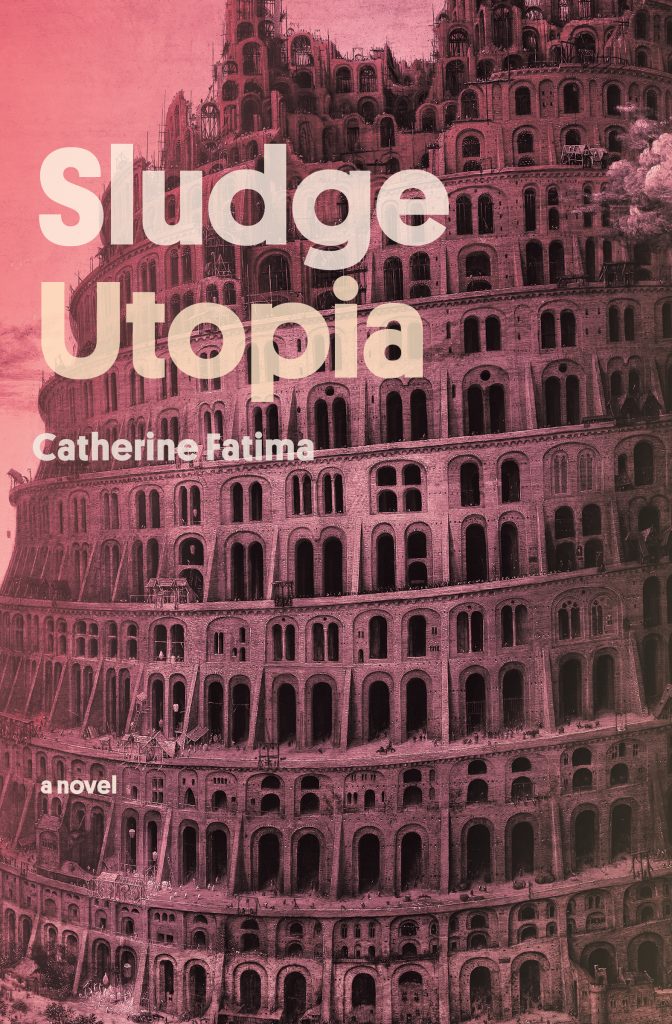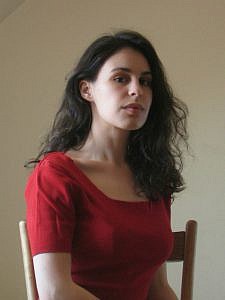Making the Self: In Conversation with Catherine Fatima

Catherine Fatima’s debut novel, Sludge Utopia, is an auto-fictional novel about sex, depression, family, shaky ethics, ideal forms of life, girlhood, and coaching oneself into adulthood under capitalism. Using her compulsive reading as a lens through which to bring coherence to her life, twenty-five-year-old Catherine engages in a series of sexual relationships, thinking that desire is the key to a meaningful life.
Sheila Heti, author of Motherhood, writes, “Few recent novels have absorbed me so completely, and filled me with this kind of plain admiration: here is a fresh mind, a captivating voice, and analytical acuity. It leaves me feeling as though I had discovered a female, 21st century Henry Miller for all its unfiltered engagement in the raw and the real.”
Sludge Utopia presents, in highly examined, raw detail, the perspective of a young woman’s punishing though intermittently gratifying sexuality and profound internalized misogyny, which causes her to bring all of life’s events under sexuality’s prism.
Book*hug intern Mary Ann Matias recently sat down with Catherine to discuss her exciting and highly anticipated book.
❧
Mary Ann Matias: What are some of your favourite books or genres? Did any of them influence this new book?
Catherine Fatima: Recently, at a reading, a wonderful person told me that my work reminded her of Kathy Acker, which was a beautiful thing to hear for having been touched so much by Kathy Acker early in my life, but my work is not as explosive as hers, yet. I like Roland Barthes for articulating emotions through literary and cultural readings in a way I’ve never otherwise encountered. The most moved I have been by a Book*hug release is by Joni Murphy’s novel Double Teenage. There are many people writing political essays I like online, but I am afraid to name them lest I later discover they are reactionaries. Recently I’m most interested Jackie Wang’s writing and Mariame Kaba’s activism/interviews.
MM: What are some other influences for your work, besides writing? Music, visual culture, science, etc.?
CF: I care more about music than writing, but I am not good enough at making it. I otherwise take psychic influence from Claire Denis, Chantal Akerman, and The Sopranos.
MM: Can you describe your writing process? What motivates you, and how do you deal with the challenges of this process?
CF: During the act of writing, I am motivated by an urge to explain causes of grief, public and private. Joy too. When I’m not writing, I think of a larger motivation: I would like to help in the global effort to overthrow capitalism, and detail some of the relational and emotional ties which keep people bound to it and its dehumanizing effects. This is the goal: to make sensible the ways in which ideological attachments become personal attachments, and the way those attachments inform one’s most intimate experience. Sludge Utopia is filled with narration of internalized misogyny primarily expressed through an investment in making the self fit for sale on the market. I’m challenged by the prospect of people taking such passages as though I, the author, were advocating them.
MM: What are you currently working on?
CF: I am working on a comedic novel about a communal household called Millennial Social Utopia, which features character development, 3rd-person narration, and details more than a singular perspective of white cis womanhood. Please wish me luck.
MM: What type of readers do you think will be drawn to your work?
CF: I think the major audiences for this book would probably be women in their twenties and men over forty, who take an interest in the lives of young women when presented in fiction, though not normally in real life.
❧
Pre-Order your copy of Sludge Utopia here.

Credit: Catherine Fatima
Catherine Fatima is a writer who was born, raised and currently lives in Toronto. Sludge Utopia is her first book.

